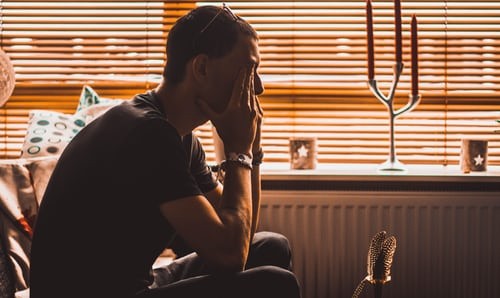Counseling in the New Normal World for Students
School Guidance Counselor and facilitator play a very important role for students most especially in this time of global pandemic where students are psychologically affected.

Students of today's generation, if not all but most of them, are not used to staying at home for an extended period. It is not a surprise anymore why many students today experience depression and anxiety. This could lead many of them to commit suicide.
In a published article in the U.S. National Library of Medicine National Institue of Health titled "COVID-19 Suicides: A Global Psychological Pandemic," researchers found out that students experienced stress, depression, and anxiety due to the global pandemic.
In another article published in The Washington Post, federal agencies and experts in the U.S. warned mental health problems like depression, substance abuse, post-traumatic stress disorder, and suicide rise three months after the pandemic.
This is when the school guidance counselors and facilitators should do their role to help students who are psychologically stressed due to the pandemic. After all, it is their moral obligation to help students either inside the academe or not.
Schools should have designed programs and include in their educational materials, some information on how to deal with stress and depression. Schools believed that students should be molded holistically. This means that it includes their psychological domain.
Here are some suggestions from Good Therapy that you should consider:
1. Provide Instruction on Psychological and Social Issues
- In this time of the global pandemic, the school guidance counselors and facilitators can also create a module that discusses different ways on how to deal with stress, depression, and anxiety. If possible, an online seminar could also be facilitated.
2. Vocational Guidance
- This is most of the time forgotten by many guidance counselors and facilitators. Students should be guided and be prepared in the career that they want in the future. There should be a consultation with the students based on their aptitude tests and review the necessary materials to help the students. The teacher alone cannot do it, but with the help of counselors, you can help students have a brighter future.
3. Counseling
- Typically, the guidance counselor is the second person to approach in dealing with students' behavioral problems. Usually, it comes first in the discipline officers' office. However, the fact is that the guidance should deal with it first. There is a need for clear guidelines.
4. Early intervention
- People assigned in this particular position were trained about learning difficulties and psychological concerns that students manifest. However, sometimes this becomes an additional work to the teaching force, which is not supposed to happen. This is the primary obligation of guidance counselors and facilitators.
Further, counselors and facilitator have the obligations to:
- Maintain academic standards and set goals for academic success.
- Develop skills to improve organization, study habits, and time management.
- Work through personal problems that may affect academics or relationships.
- Improve social skills.
- Cope with school or community-related violence, accidents, and trauma.
- Identify interests, strengths, and aptitudes through assessment.
Remember that since you are dealing with students' issues and problems, all information should only be between you and the students. And not be disclosed among anyone else.
Check these out:
Latin Artists' Good Deeds to People Who are in Need During COVID-19 Pandemic
How Latin Companies Can Boost Their Brand Awareness With Corporate Gifts
Subscribe to Latin Post!
Sign up for our free newsletter for the Latest coverage!
© 2026 Latin Post. All rights reserved. Do not reproduce without permission.















